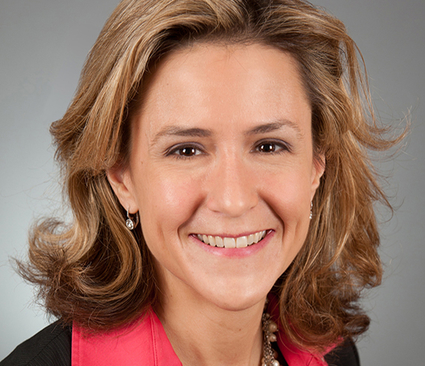
Q&A with Christina Ullrich, MD, MPH
June 19th, 2020
Christina Ullrich MD, MPH is a senior physician in the Department of Psychosocial Oncology and Palliative Care at Dana-Farber Cancer Institute, and an Assistant Professor in Pediatrics at Harvard Medical School. She also serves as Co-Director of Palliative Care Education and Practice (PCEP).
Tell us about your research / area of expertise. What drew you to this?
One of my overarching interests is improving the wellbeing of children who are bone marrow transplant recipients. For these children, transplant provides an opportunity for cure, which otherwise usually does not exist. At the same time, it is intensive treatment, with significant impact on both the child and family. My hope is to improve their wellbeing, even in the face of life-threatening illness and intensive, cure-oriented treatment.
I am lucky to be part of a range of exciting projects in this area! From a research perspective, I study the symptoms and quality of life of children as they go through transplant. I am also working with collaborators in Seattle and at the University of North Carolina to understand what causes- and alleviates-fatigue in transplant survivors. From a programmatic standpoint, I am involved in several initiatives to integrate pediatric palliative care (both primary and subspecialty) into the routine care of children receiving a bone marrow transplant.
What’s your favorite part of your job?
By far and away the best part is the opportunity to be part of the lives of children living with serious illness, and their families. They never fail to humble and teach me! I never know what will happen as I enter the room to meet a family for the first time. Each consult is a unique experience, yet it never happens the same way twice. Even so, I always walk away feeling inspired and energized. Being part of their story in some way, helping them to live as well as possible, and witnessing the collateral beauty (e.g. kindness, love, forgiveness) that occurs along the way is such a privilege.
What authors or books have influenced you most?
As an undergraduate majoring in genetics, I read a biography of Barbara McClintock by Evelyn Fox Keller, A Feeling for the Organism, and the lessons I learned from Dr. McClintock’s approach to her work have stayed with me since. Dr. McClintock was a geneticist who studied maize (corn) cytogenetics in the first half of this century. She pioneered the field of genetic regulation (she discovered transposons, or “jumping genes”). The fact that she made such discoveries through direct observation, utilizing relatively simple techniques, is actually quite astounding! Decades later, the magnitude of her work received the recognition it deserved. She received the 1983 Nobel Prize in Physiology or Medicine, and was first woman to win that prize unshared.
Dr. McClintock’s intuitive approach to her subject, which she called “getting a feel for the organism,” was at the heart of her groundbreaking work, and is what I feel sets her apart. In her quiet, determined way-and in the midst of a culture that did not readily accept women in science - she utilized intuition and a subconscious approach to transcend purely empiric and rational deductions. Dr. McClintock taught me to take time, be still, and cultivate a sense of “what makes something tick,” while also incorporating available data. This has been a valuable lesson to me, whether as a scientist at the bench or a palliative care physician with a patient.
In your spare time, what do you do for fun?
I love to be outdoors - it’s an important way for me to stay grounded, maintain perspective and appreciate how spectacular nature is. I enjoy nature travel and am passionate about efforts to promote environmental sustainability and stop climate change. I especially love to spend time with my four rescue dogs and I compete in agility with one of them. It’s incredible how much one can learn about nonverbal communication when guiding a dog through a complex set of obstacles! I am also studying to be a certified wildlife rehabilitator to help injured or orphaned wild animals.
If you were stuck on a deserted island, what music, movies or other entertainment would you bring?
I would bring snorkel gear, a kayak, and a good bottle of albarino.
